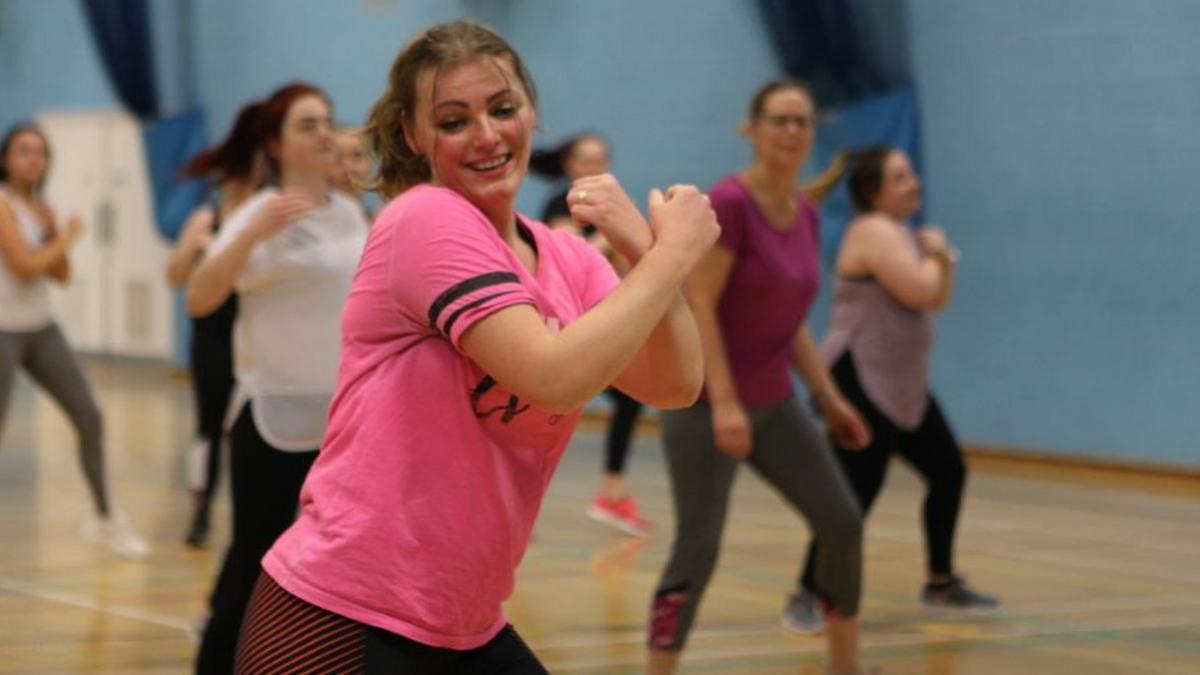Ipswich to turn into 'giant' interactive game to increase wellbeing
- Published
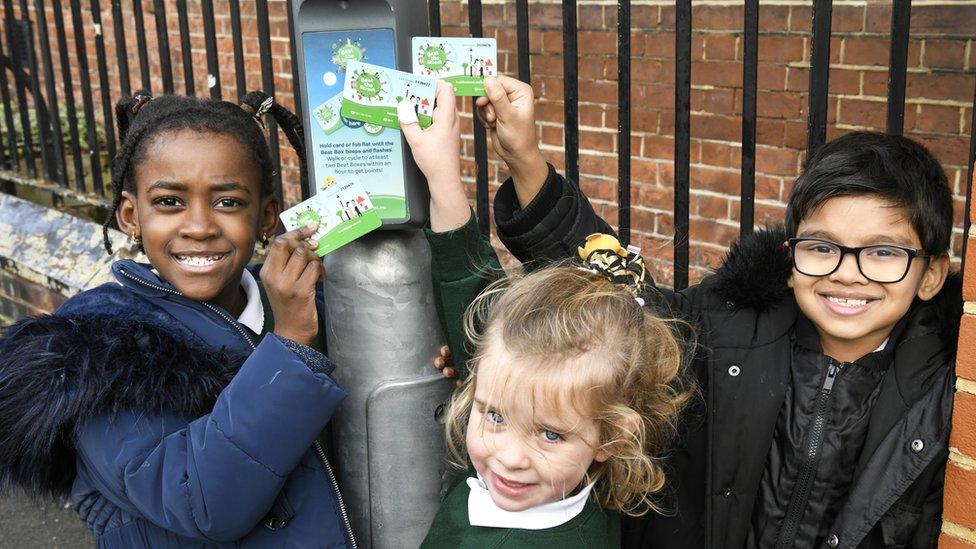
This will be the first time Beat the Street is active in a Suffolk town
An interactive game designed to improve activity levels and wellbeing is coming to a Suffolk town.
Beat the Street will turn Ipswich into a "giant game" for six weeks from Valentine's Day, organisers said.
Over 100 "beat boxes" will be placed around the town and players can tap them to earn points and win prizes.
Game creator and GP Dr William Bird said the intention was that "the legacy will go on for years afterwards".
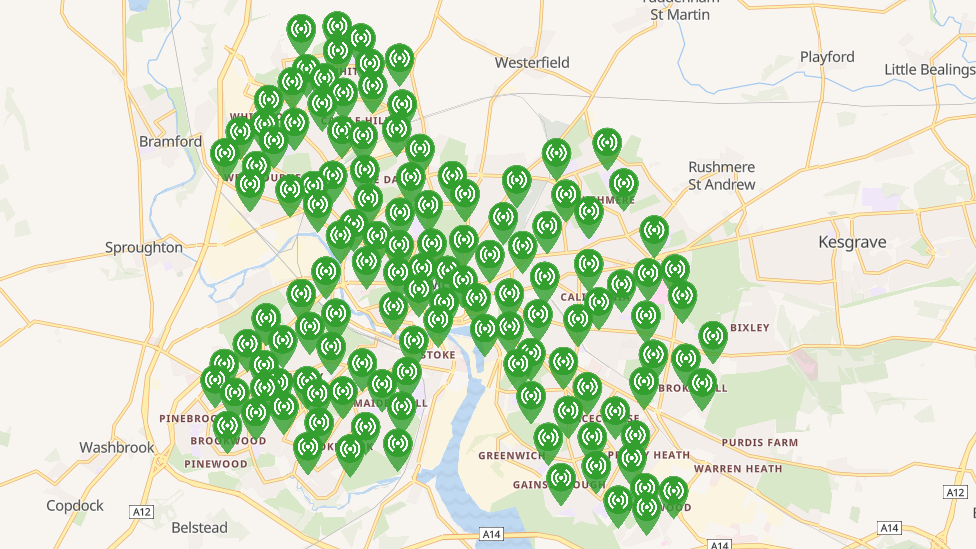
There will be over 100 "beat boxes" to find across Ipswich
He designed the game about 10 years ago, with the aim of getting people to explore local places of nature and meet community groups.
Pupils from Ipswich primary schools have been automatically enrolled, and will receive a contactless card to play the game, plus an extra card for their parent or guardian.
Adults can also sign up to play.
The game is run by Intelligent Health, founded by Dr Bird, in partnership with Suffolk County Council, Ipswich Borough Council and Ipswich and East Suffolk Alliance.
Labour councillor John Cook, borough portfolio holder for communities and sport, said: "Not only does the game help to motivate people of all ages and abilities to exercise, it's also been positive in bringing people in the community together to get outside, to get to know new people, and have fun."
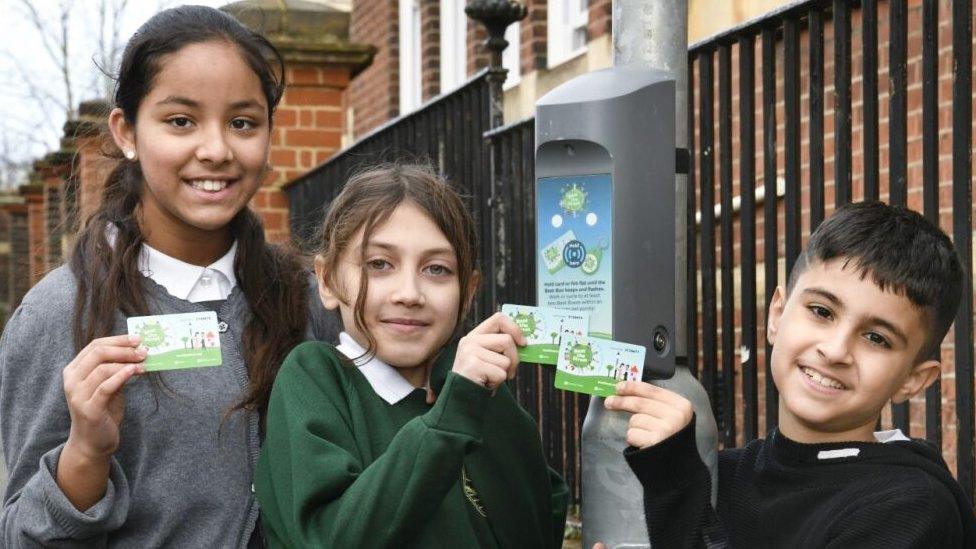
All children in Ipswich primary schools will receive a free card for the game
The game has been funded by the county council and the National Lottery via Sport England. Those who sign up will be invited to complete health-related surveys.
"From the research that's been done, people do shift their behaviour," Dr Bird said.
"They do become more active and that stays for up to two years when we follow people through after the game."
He said the game would have the biggest impact on young children.
"They are spending so much time indoors and they're not connecting to nature," he said.
"Children who don't connect to the outdoors in early childhood will be far more likely to have mental health problems, diabetes, and even dementia at the other end of their life."

Follow East of England news on Facebook, external, Instagram, external and X, external. Got a story? Email eastofenglandnews@bbc.co.uk , externalor WhatsApp 0800 169 1830
- Published7 December 2023
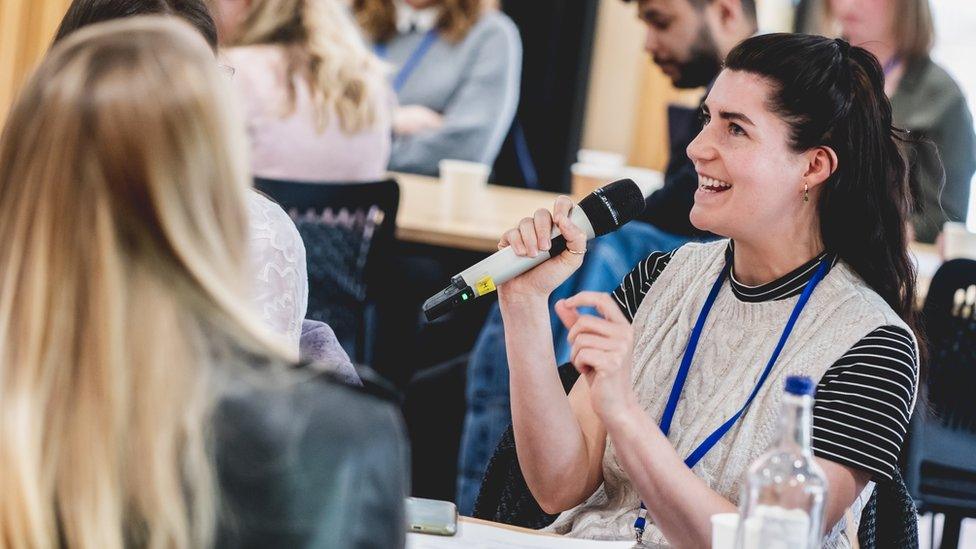
- Published16 February 2023
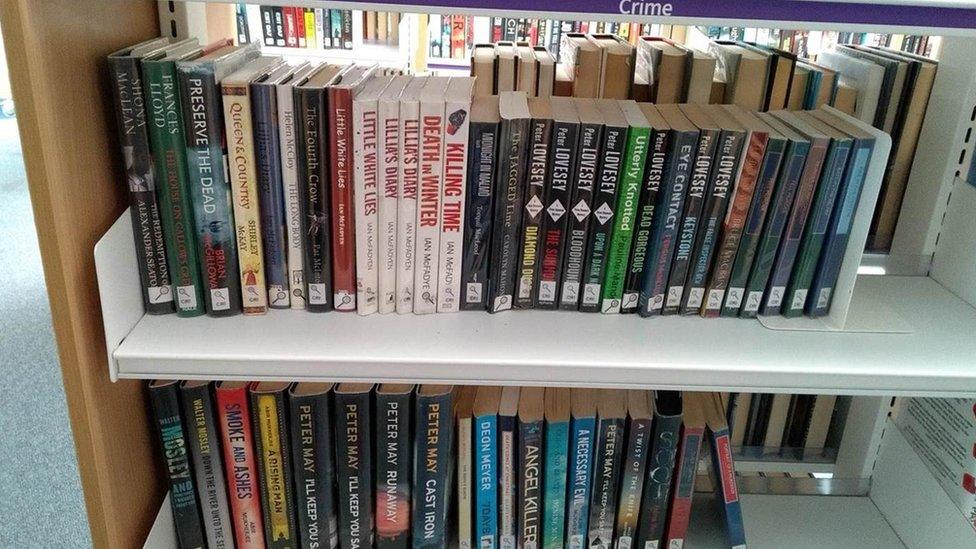
- Published5 March 2019
